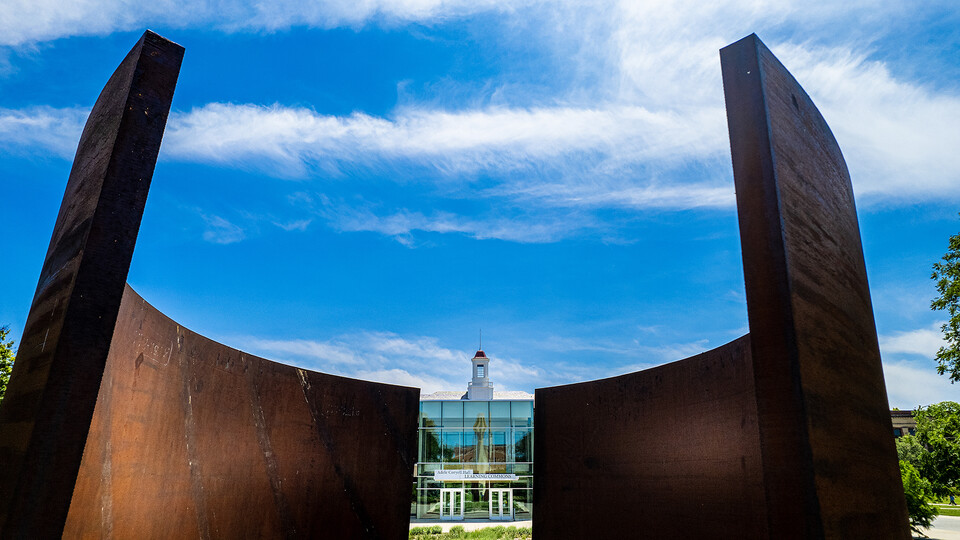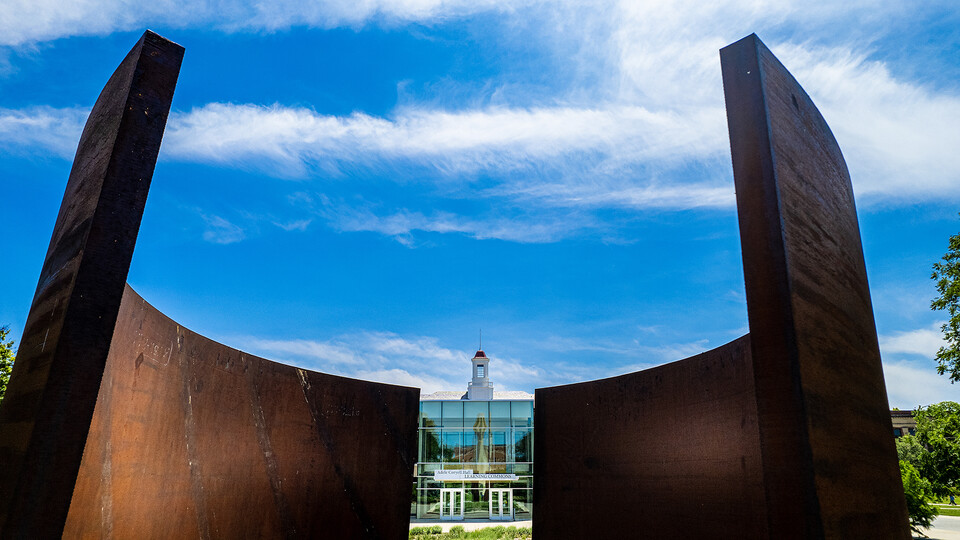
Fifteen experts across disciplines joined the college this fall to contribute to our research, teaching, and public service missions.
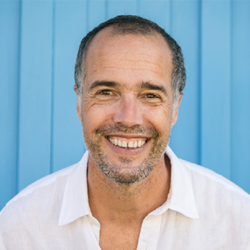
Roberto Abadie
Anthropology
As a trained medical anthropologist my research focuses on how different forms of social stratification, in particular, class, race, and ethnicity, contribute to produce and reproduce health inequalities in marginalized populations. I have conducted extensive fieldwork on the ethics of clinical trials, HIV risk, People Who Inject Drugs (PWID), and health disparities among Latino populations in a variety of settings in Latin America, the Caribbean and the US.
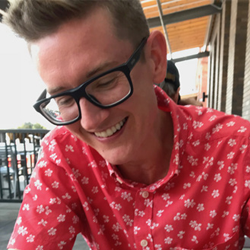
James Brunton
English
I am a writer, artist, and scholar of film studies and critical theory. My research and teaching are focused on contemporary US film and media, through queer, transgender, feminist, critical race, and psychoanalytic theoretical lenses. I am interested in the ways artworks come to count as political, in the dual sense of being named as “political” and actually shifting our perception of reality in ways that (have the potential to) effect political change. In particular, my work theorizes the roles of film, performance, and poetics within biopolitical contexts, examining how individual psychical and affective responses to political and economic discourses shape the production and reception of art.
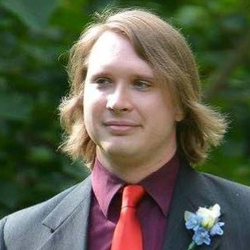
Ross Dixon
Earth and Atmospheric Sciences
One of the grand challenges for the climate science community is understanding the fundamental mechanisms that determine the strength and location of precipitation. My research focuses on better understanding the physical processes that control precipitation and how they are represented in numerical models. To further this research, I regularly design and run simulations with a wide range of complexities, apply statistical techniques to model output and observational data, and develop theory. I am looking forward to teaching topics in atmospheric and climate dynamics, as well as numerical modeling of weather and climate.
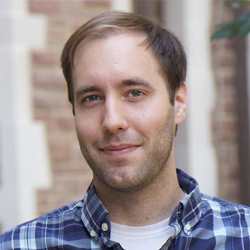
Pierce Ekstrom
Political science
I study the causes and consequences of political disagreement. How do people choose between parties and their candidates? Under what conditions is political disagreement more or less tractable? And in what ways is disagreement good and bad—either for individual people or for democracy at large?
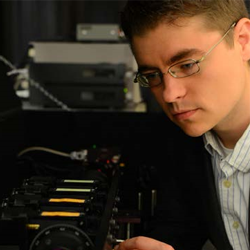
Keith Foreman
Physics
I teach the Introductory Physics for the Life Sciences (IPLS) courses. My immediate focus is to develop new curriculum for our IPLS courses to present introductory physics in a biological context. This will help students make meaningful connections between physics and the health and life sciences, and ultimately, give them a deeper understanding of living system.
I will be involved in both physics education related to IPLS and experimental physics research. My education research is focused improving assessment strategies of students in introductory physics, and improving the manner in which the skills students acquire in lab are recalled in other components of the course. My experimental physics research is within the realm the atomic, molecular, and optical physics. Currently, I am constructing and characterizing an optical polarimeter that is capable of measuring the polarization of light to unprecedented accuracies.
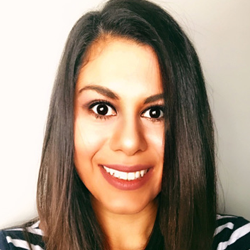
Catherine Garcia
Sociology
Catherine’s research and teaching interests center on Latina/o/x aging and health, social determinants of health, health disparities, biodemography, and quantitative methods. Much of her work explores how the intersections of race and ethnicity, national/cultural origin, nativity, and gender shape the life experiences of individuals that influence older adult health in the United States. Through this work, she illustrates how intersecting social disadvantages structure health inequalities and highlights the importance of considering heterogeneity within the Latina/o/x population.
Her research has been supported by the National Institute on Aging of the National Institutes of Health and has had her research work published in the Journals of Gerontology: Social Sciences, The Gerontologist, Journal of Aging and Health, Journal of the American Geriatrics Society, Demographic Research, Innovation in Aging, Research on Aging, and Ethnicity & Disease.
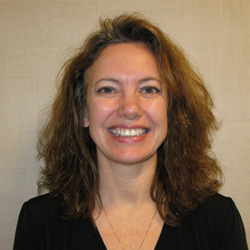
Kimberly Hansen
Biological Sciences
I have been teaching Anatomy and Physiology, Human Anatomy, and Human Physiology for the last 15 years. I have also taught courses in General Biology, Pathophysiology, Embryology, and others. My research interests include the examination of cognitive methods in teaching. I am interested in understanding students’ use of metacognition in learning and how teachers and faculty can incorporate these techniques. Another research interest is increasing the retention of minority groups in STEM courses.
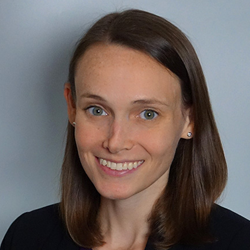
Anna Jaffe
Psychology
Dr. Jaffe’s research interests lie at the intersection of traumatic stress and alcohol use research. Specifically, her research focuses on the prevention and treatment of sexual assault, posttraumatic stress, and co-occurring substance use, with an emphasis on unique implications for alcohol-involved sexual assault. By translating basic research on alcohol use and stress reactions, she seeks to design and improve clinical interventions that support survivors’ recovery and reduce distress over time. Dr. Jaffe will be teaching quantitative methods (e.g., longitudinal structural equation modeling) and providing statistical consultation in the Department of Psychology.
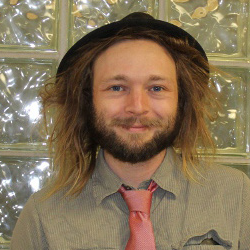
Jack Jeffries
Mathematics
My research area is mathematics: specifically, commutative algebra. I use algebra to study systems of polynomial equations in many variables. I study points in solution sets to systems of equations that have “corners” or “crossings,” or whatever a higher-dimensional analogue of these is.
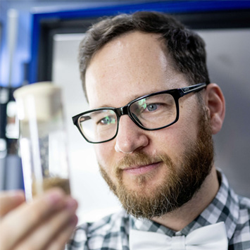
Ian Keesey
Biological Sciences
I study a variety of Drosophila insect species to understand how the brain controls behavioral decision-making. In general, I am interested in how the brain functions and is shaped by ecology and evolution.
More specifically, animal behavior utilizes simultaneous input from several body regions (i.e. eyes, nose, ears, and mouth) and in turn, the brain receives information from many sensory modalities (e.g. visual, olfactory, auditory, and gustatory). Therefore, by studying several sensory systems within the brain of a single organism, we hope to develop a multimodal neuronal innervation model to further our understanding of neuroanatomy as well as complex animal behavior. Here, by then comparing the brains of many similar organisms, I hope to identify similarities and common trends in how the brain is organized and optimized to meet the needs of each animal.
Teaching could include a curriculum of Comparative Neuroscience and Animal Behavior, with laboratory instruction such as computer-assisted video tracking of behavior, neural staining/reconstruction, and electrophysiology.

Timothy Parrish
English
Most of my scholarly work has focused on major American writers such as Ralph Ellison, Ralph Waldo Emerson, Toni Morrison, Phillip Roth, Cormac McCarthy, Don DeLillo, among others. I have published three scholarly books, most recently Ralph Ellison and the Genius of America. I also edited The Cambridge Companion to Philip Roth and The Cambridge Companion to the American Novel. Some of my recent fiction has been published in Raritan, Ploughshares (“The Critic,” a novella about a critic’s obsession with Bob Dylan), Equinox, and Vestal Review.
In the classroom, I have generally taught courses about the novel (European, American, Latin American—pretty much anything that can be traced to Don Quixote.) I’m currently working on a book concerning Jewish American fiction and the Holocaust.
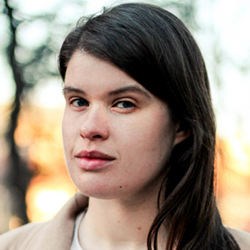
Julia Reilly
Global Integrative Studies, Human Rights and Humanitarian Affairs
I am first and foremost a human rights educator, both within and beyond the classroom. My pedagogical mission is to help students understand the breadth, complexity, and ambiguity of human rights issues not only around the world but here in Lincoln. I focus not only on helping students understand concepts of human rights and global engagement, but on helping them cultivate the skills they need to be engaged citizens who constantly and critically consider their place in a vast global context.
Beyond the classroom, I work coordinating events to help students connect their work in classroom to ongoing human rights work in Nebraska and beyond. As a researcher, I use mixed but mostly qualitative social science methods to inquire about how the international criminal justice regime impacts human rights realities and about when, why, and how people mobilize to defend human rights, even at great personal risk.
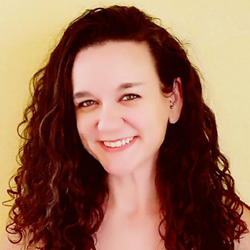
Erica Schauer
French (Modern Languages and Literatures)
Dr. Erica Schauer teaches intermediate grammar courses, French creative writing, historical representations and expressions of French queerness, history and literature leading up to and following the French Revolution, and 19th century French literature to upperclassmen and graduate students. Her research interests include queer theory, transgender studies, ritual studies, girls’ education, prostitution and the body.
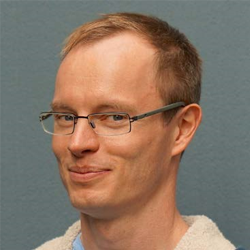
Robert Streubel
Physics
I am an experimental condensed matter physicist with a background in synthesis and characterization of magnetic thin films. My research focuses on the relationship between electronic and magnetic properties, and chemical and structural quantities in disordered magnetic materials, which provide, compared to single-crystals and epitaxial films, greater flexibility in materials synthesis and low-power manipulation of prospective microelectronics.
On a more fundamental level, my research will help explore the resemblance of short-range order and symmetry from the perspective of topological states. I am harnessing disorder, curvature, strain and voltage to stabilize non-collinear, topological states and to trigger phase transitions, which are probed by electronic transport, magnetometry, and advanced x-ray and electron microscopy and scattering experiments, and supported by numerical modeling.
In my first year, I will teach calculus-based classical mechanical physics.
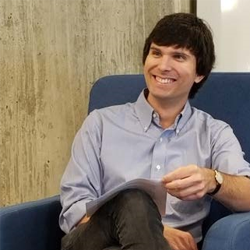
P. Quinn White
Philosophy
My research explores and defends a conception of ethics that takes love as central. I am interested in the idea taken seriously in many religious traditions but largely ignored in secular ethics, that the idea that love of all, or agape, is the central ideal of a life welllived. While fully manifesting agape is (for most) a grave mistake, we should approximate agape inasmuch as we can consistent with other commitments in our lives; I argue, the minimal required approximation of love for all is respect.
My research is a defense and implementation of this love-first approach, with projects in the ethics of honesty and discretion, partiality, consent, and forgiveness, as well as more applied projects on deception in the social science research and the politics of technology and privacy.
